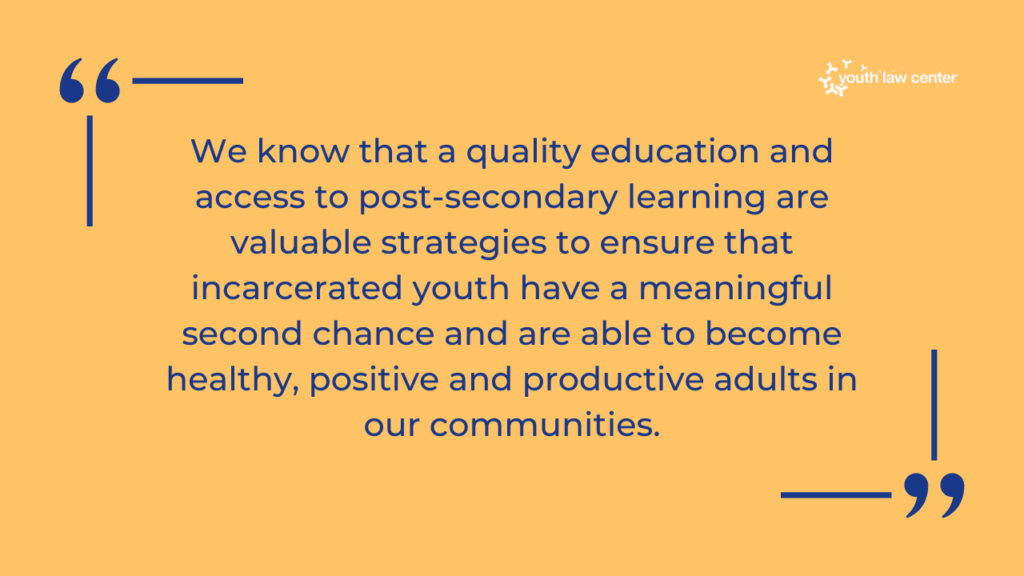About Our Work
Our advocacy has resulted in expanded access to and success in postsecondary education for young people in the juvenile justice system in California. We have successfully advocated for significant state legislative changes, policies, and funding that create clear and accessible pathways to college and career for juvenile justice impacted youth; grows the number, scope and quality of community college campus programs providing access to postsecondary opportunities specifically for justice-involved youth, and creates and nurtures a statewide network of support for these programs.
Our advocacy focuses on two issues related to public safety and education that are critical to Californians. First, we are working to ensure that the juvenile justice system achieves its mission of rehabilitation, particularly during this time of significant political and public backlash against justice reform. Second, we are developing new and effective interventions — through the state’s community colleges — that facilitate youth successfully returning to their communities or avoiding incarceration altogether.
Background: Demographic Snapshot of California’s Juvenile Justice System
Approximately 30,000 youth are referred to California probation departments annually – the vast majority Black, Latinx, and Indigenous. Thousands of those youth are incarcerated in detention facilities every day, and most have had a disjointed, disrupted and challenging educational experience. We know that a quality education and access to post-secondary learning are valuable strategies to ensure that incarcerated youth have a meaningful second chance and are able to become healthy, positive and productive adults in our communities. We know that failure to attain a college degree can have grave consequences: individuals who don’t go to college earn 60% to 75% less over their lifetimes compared to those with bachelor’s degrees. They are more likely to be terminated as employees during difficult economic periods. They are less likely to engage with their communities. Yet current data suggest that less than 2% of youth exiting juvenile justice systems graduate from college.
